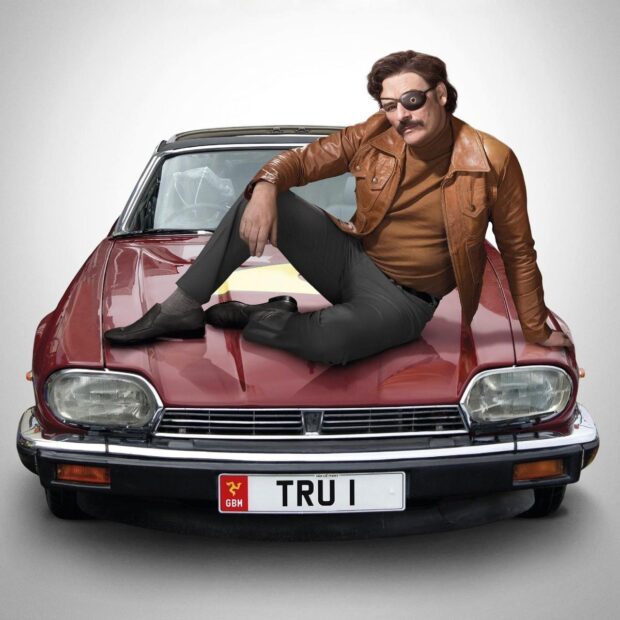Greta Gerwig takes us beyond the valley of the dolls.
Against all odds, Barbie emerges as a cinematic wonder – an exuberant, deeply intelligent, and playfully subversive film that takes a pop culture icon and transforms it into a strikingly relevant commentary on identity, gender roles, and self-worth. Greta Gerwig, working from a whip-smart script co-written with Noah Baumbach, has achieved something extraordinary: an adaptation that doesn’t just acknowledge the inherent contradictions and criticisms surrounding Barbie as a cultural artefact but actively engages with them, dissecting, reimagining, and ultimately celebrating the doll’s legacy in a way that feels vital and fresh.
Margot Robbie is a revelation as Barbie, a pitch-perfect embodiment of the character’s aspirational allure yet never played as a vapid caricature. Her journey from the manicured perfection of Barbie Land to an existential crisis in the real world is both hilarious and profoundly moving. Robbie navigates this arc with a delicate balance of sincerity and knowing wit, ensuring that every moment feels emotionally grounded even as the film embraces its more absurdist flourishes.
But while Barbie’s journey of self-discovery drives the film, Barbie is just as much about Ken – specifically, about what it means to exist in a world where identity has been predetermined by societal structures. Ryan Gosling’s performance is nothing short of spectacular, layering his comic bravado with aching insecurity. His Ken, desperate for validation, flounders when he realises he is defined entirely by his proximity to Barbie. This leads to one of the film’s most inspired thematic explorations – not just of female empowerment and objectification, but of male fragility. What could have been a reductive or mean-spirited deconstruction is instead handled with warmth and nuance. Ken isn’t vilified; he’s liberated. His journey, much like Barbie’s, is one of self-actualisation – not as a counterpart to someone else, but as his own person.
The film’s genius lies in how it tackles these themes with both sharp satire and genuine heart. Barbie doesn’t shy away from interrogating the legacy of its own source material – the impossible beauty standards, the corporate commodification of feminism, and the ways Barbie has been both celebrated and criticised for decades. Yet it does so with a knowing wink, never becoming cynical or heavy-handed. There’s an effortless intelligence to Gerwig’s approach, allowing the film to be both self-aware and sincere. When Barbie steps into the real world and is confronted with the inescapable contradictions of modern womanhood, the film doesn’t just point out the problems – it offers an invitation to break free from them. Importantly, Barbie recognises that identity is expansive and inclusive. In Barbie’s world, all women are women, without exception or limitation. The film embraces this inclusivity without grandstanding, ensuring that Barbie remains a reflection of all possibilities rather than a rigid ideal.
Throughout, Helen Mirren’s narration adds an extra layer of bite, functioning as an omniscient observer who is both reverential and irreverent. Her wry interjections, particularly when the film playfully undercuts its own messaging, add a knowing nudge to the audience, ensuring the satire never becomes too self-serious. A lesser film might have used narration as a mere framing device, but here, Mirren’s commentary feels integral – an unseen storyteller shaping the journey with a perfectly timed eyebrow raise.
The world of Barbie Land is an unrestrained delight. The production design meticulously crafts a pastel dreamscape of plastic perfection, complete with painted backdrops, artificial waves, and perfectly curated fashion that pays homage to the doll’s long history. The costuming alone is a masterstroke, blending nostalgia with reinvention, from Barbie’s timeless pink ensembles to Ken’s absurdly delightful fur coat and sunglasses combo.
The supporting cast shines, with America Ferrera delivering the film’s emotional crescendo in a monologue that encapsulates the exhausting contradictions of being a woman in today’s world. Kate McKinnon, as the delightfully odd “Weird Barbie,” brings chaotic brilliance to every scene, while Simu Liu and Ncuti Gatwa elevate Ken’s own misguided self-discovery with hilarious, over-the-top rivalry. Even Will Ferrell’s turn as Mattel’s bumbling CEO adds an extra layer of satirical bite, though wisely, the film never lets corporate cynicism overshadow its message.
Musically, Barbie is a triumph. Mark Ronson’s infectious soundtrack propels the film’s emotional highs and comedic beats, but its most inspired trick is how every needle drop functions both diagetic and non-diagetic simultaneously. Barbie Land operates on its own heightened reality, where music pulses through the world like an omnipresent playlist – both within the characters’ perception and beyond it. This clever approach gives the film a sense of musical cohesion, letting the soundtrack shape the action while still feeling completely natural. Gosling’s power ballad “I’m Just Ken” is a shining example of this, a ludicrous, brilliant, and utterly sincere anthem of performative masculinity in crisis, somehow existing as both an internal monologue and an extravagant musical number all at once.
What makes Barbie truly special is that it doesn’t just deconstruct – it reconstructs. It isn’t interested in tearing things down for the sake of it but rather in offering a path forward. It acknowledges the flaws in Barbie’s history but refuses to let that diminish what she has meant to millions. More than that, it extends the same invitation to Ken, to all the characters, and, by extension, to the audience: to reject imposed expectations, to embrace imperfection, to be real.
It would have been so easy for Barbie to be a soulless cash grab, a self-congratulatory exercise in brand reinforcement. Instead, Gerwig has delivered something truly audacious – a film that is riotously funny, brimming with ideas, and constructed with dazzling creativity. It is a celebration of individuality, a rejection of performative roles, and above all, a film that encourages everyone – man or woman – to stop striving to be what they are told to be and instead become who they truly are.
In the end, Barbie isn’t just fantastic. It’s a masterpiece.








